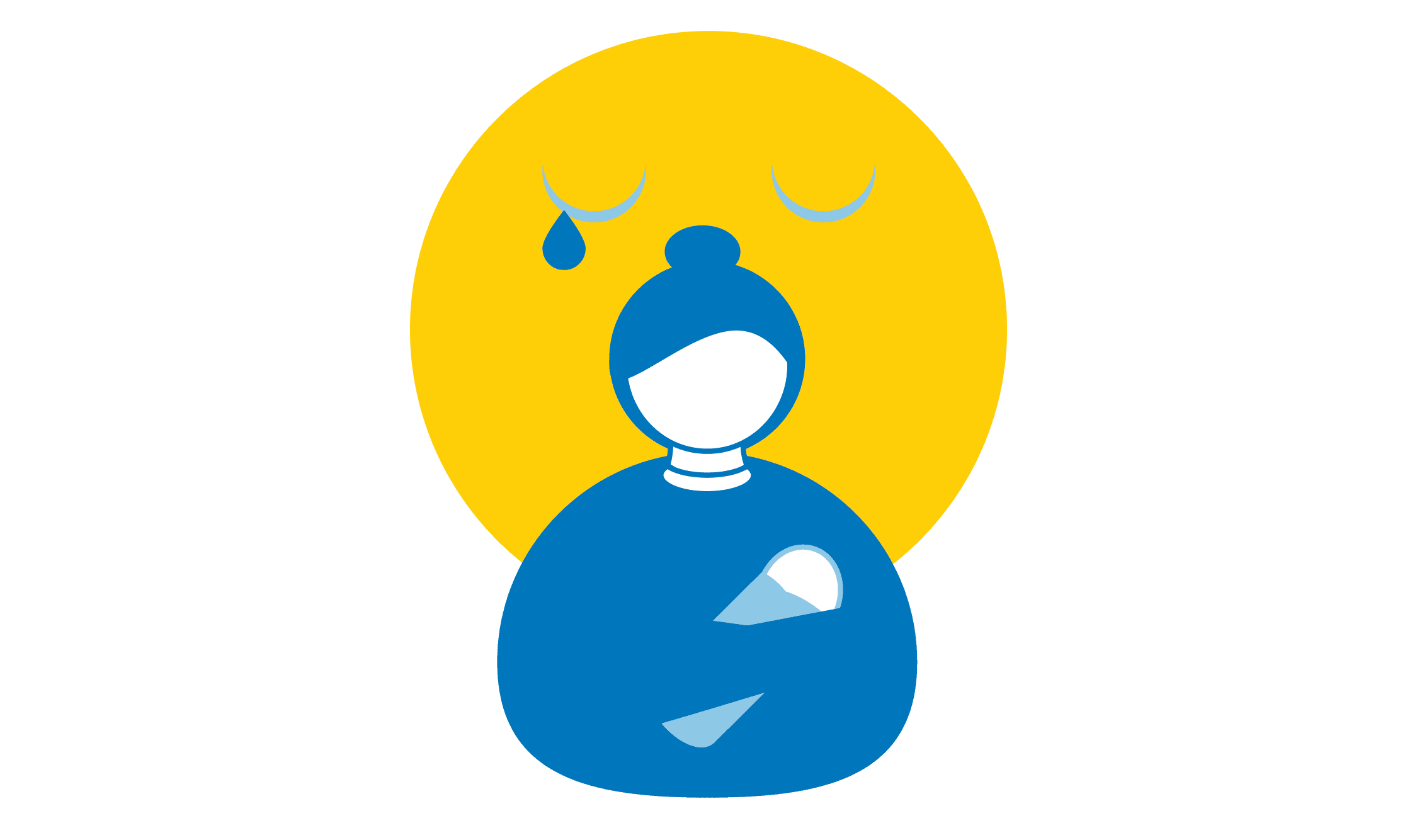You may be dealing with
Postpartum Depression
Most women get the “baby blues,” or feel sad or empty within a few days of giving birth. For many women, the baby blues go away in 3 to 5 days. If your baby blues don’t go away or you feel sad, hopeless, or empty for longer than 2 weeks, you may have postpartum depression.
According to the U.S. Department of Health & Human Services, postpartum depression is a serious mental illness that involves the brain and affects your behavior and physical health. If you have depression, then sad, flat or empty feelings don’t go away and can interfere with your day-to-day life. You might feel unconnected to your baby, as if you are not the baby’s mother, or you might not love or care for the baby. These feelings can be mild to severe. Mothers can also experience anxiety disorders during or after pregnancy.
Postpartum depression may be mistaken for baby blues at first — but the signs and symptoms are more intense and last longer, and may eventually interfere with your ability to care for your baby and handle other daily tasks. Symptoms usually develop within the first few weeks after giving birth, but may begin earlier ― during pregnancy ― or later — up to a year after birth.

Postpartum Depression Signs and Symptoms
- Depressed mood or severe mood swings
- Excessive crying
- Difficulty bonding with your baby
- Withdrawing from family and friends
- Loss of appetite or eating much more than usual
- Inability to sleep (insomnia) or sleeping too much
- Overwhelming fatigue or loss of energy
- Reduced interest and pleasure in activities you used to enjoy
- Intense irritability and anger
- Fear that you’re not a good mother
- Hopelessness
- Feelings of worthlessness, shame, guilt or inadequacy
- Diminished ability to think clearly, concentrate or make decisions
- Restlessness
- Severe anxiety and panic attacks
- Thoughts of harming yourself or your baby
- Recurrent thoughts of death or suicide
How We Help
If you or a loved one is experiencing a mental health condition like postpartum depression, YOU ARE NOT ALONE! The Center for Health Care Services can help. Our Adult Behavioral Health Division offers the following comprehensive services.
In the event of a mental health crisis including suicidal or homicidal thoughts, please call the 24-Hour Crisis & Substance Use Helpline at 800-316-9241 or 210-223-SAFE (7233). If harm to self or others is imminent, call 9-1-1.
The CHCS team helps people find hope, determine their path to wellness, and discover their way to an independent, productive life.
- Psychiatric evaluation and treatment
- Medical follow-ups and management
- Wellness counseling, education and therapy
- Integrated and primary care
- Individual and group therapy
- Psychosocial rehabilitation
- Case management
- Crisis services
- And other services to support each person’s goals for recovery
Programs
Outpatient Mental Health Services for Adults
Comprehensive mental health services to support each person’s goals for recovery, including: psychiatric evaluation and treatment, medication management, wellness counseling and education, individual and group therapy, psychiatric care, psychosocial rehabilitation, and case management offered at a variety of locations.
How to Enroll in Adult Behavioral Health Services
For more information, or to enroll in mental health services, please call: 210-261-CHCS (2427)
